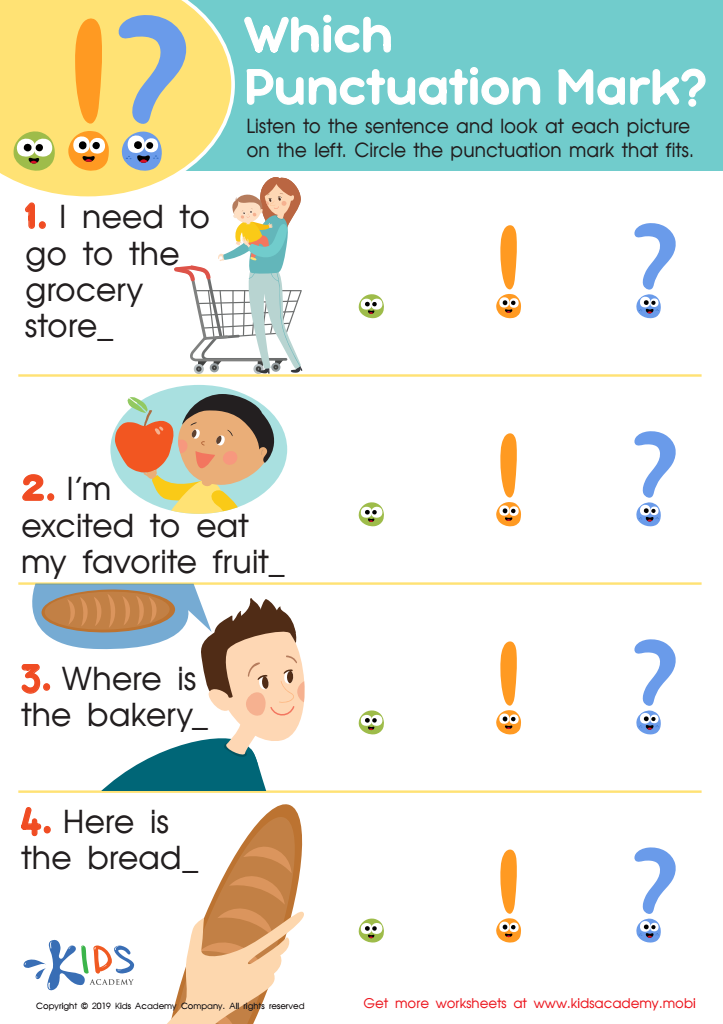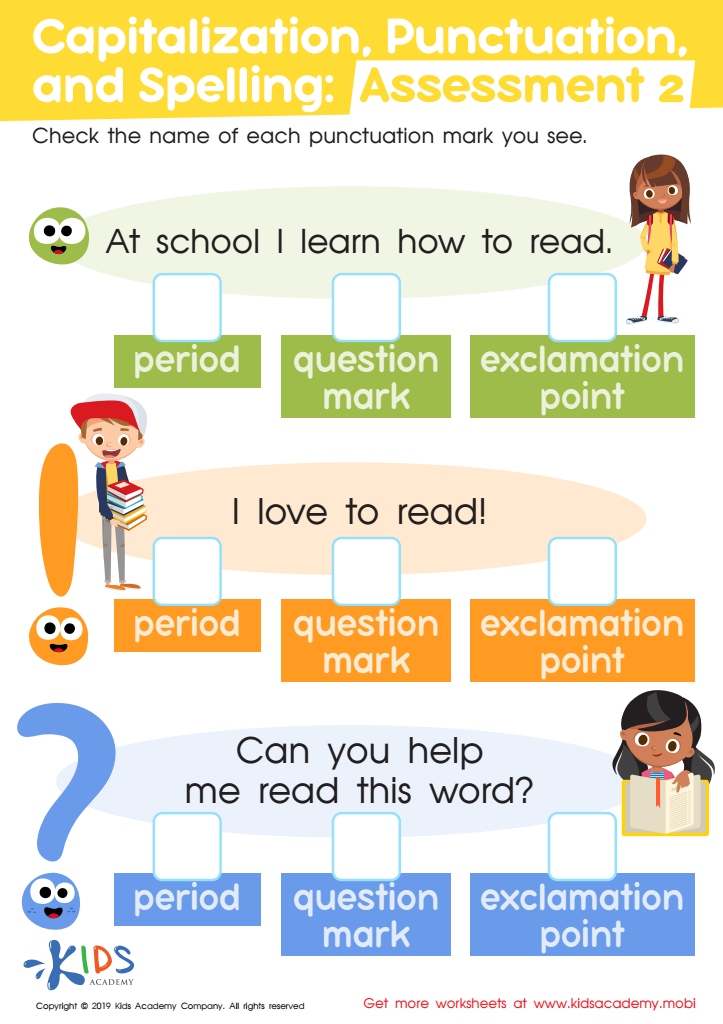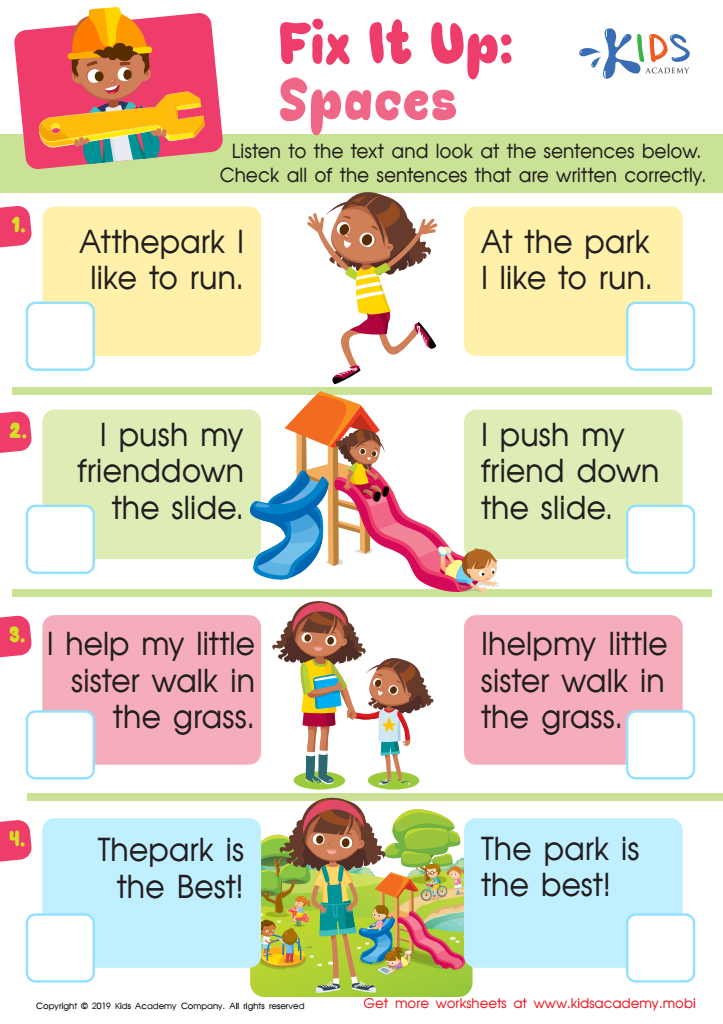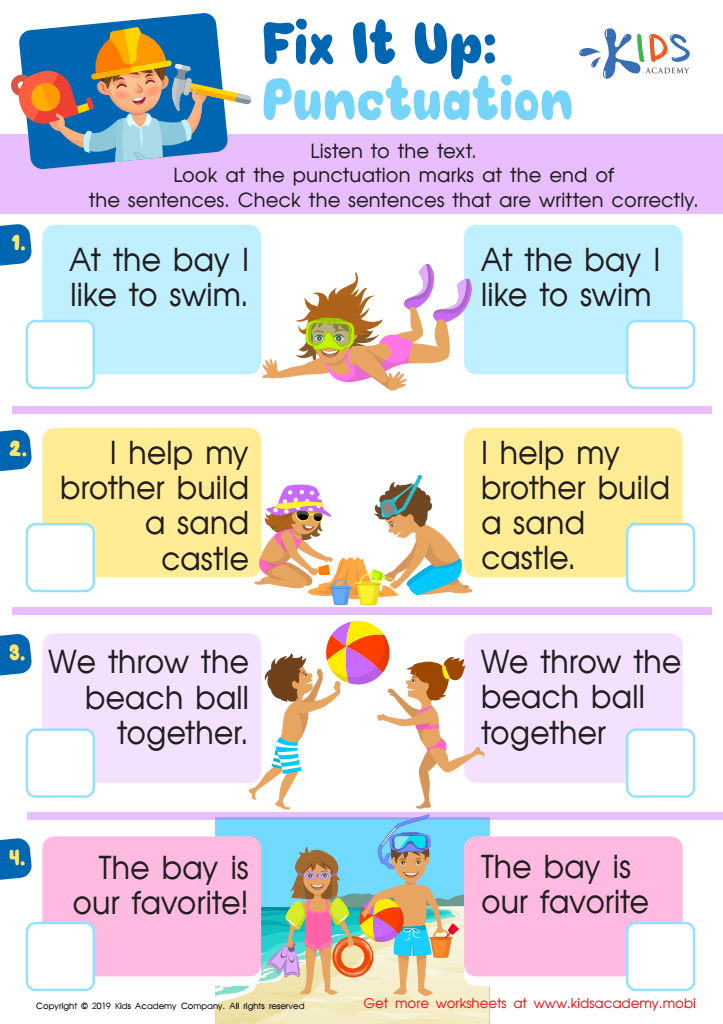Easy Punctuation Worksheets for Ages 4-9
4 filtered results
-
From - To
Discover our "Easy Punctuation Worksheets for Ages 4-9" designed to make learning fun and engaging. Our expertly created worksheets help young learners master the basics of punctuation, including periods, question marks, and exclamation points. Suitable for kids aged 4 to 9, these worksheets align with educational standards and promote age-appropriate learning. Perfect for both classroom and home use, they support literacy development and improve writing skills through interactive exercises and colorful visuals. Make punctuation practice enjoyable and effective with our easy-to-use, child-friendly resources. Explore now and give your child a head start in writing!


Which Punctuation Mark Worksheet


Capitalization. Punctuation. Spelling: Assessment 2 Worksheet


Fix Spaces Worksheet


Fix Punctuation Worksheet
Easy Punctuation for ages 4-9 is crucial as it lays the foundation for effective communication skills that children will need throughout their academic journey and beyond. At this pivotal learning stage, understanding basic punctuation such as periods, commas, and question marks helps young learners structure their thoughts clearly and coherently. When children grasp punctuation early, they are better equipped to read smoothly and comprehend texts, leading to improved literacy skills.
For parents and teachers, investing time in teaching punctuation offers long-term benefits. It prevents future struggles with writing and reading comprehension, areas that are essential for academic success in all subjects. By mastering punctuation now, children are less likely to develop bad writing habits that are harder to correct later.
Moreover, proper punctuation influences a child's ability to convey emotions and clarity in their writing. Whether sharing stories, describing an event, or asking questions, the correct use of punctuation marks helps them express themselves more accurately and confidently.
In short, focusing on Easy Punctuation can transform a basic educational need into a life skill, enhancing a child's ability to engage in all forms of communication effectively. Thus, parents and teachers should regard it as a pivotal component of early education.
 Assign to My Students
Assign to My Students



















